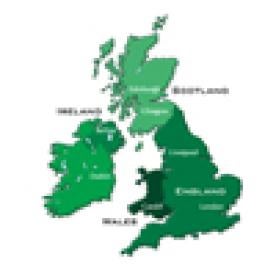The UK’s next General Election will be on 7 May 2015, and with neither the Conservatives nor Labour having a clear lead in the opinion polls, the outcome is difficult to predict (see our earlier post on this topic). Ordinarily, the economy is the key battleground topic for General Elections, but recent polls suggest that immigration will also be a crucial topic. In particular, polling by YouGov showed immigration as the most important issue for the electorate between May to December 2014, save for on three occasions when tied with the economy (see item 4 of here). This blog post considers the issue of immigration in the context of the 2015 General Election, and how this issue is inextricably linked with the UK’s relationship with the European Union.
Attitudes about immigration are complex, influenced by various factors including the individuals polled and the type of immigration considered. For example, attitudes toward high-skilled migrants are generally more positive than toward low-skilled labour migrants, extended family members and asylum seekers (see link). Contrasting asylum seekers with economic immigrants demonstrates how very different migrant types can become exaggerated as an electoral issue. Refugees comprise only a small element of overall migration. In the year ending June 2014, total net migration to the UK was 260,000. In the same period, there were 23,479 asylum applications, with 13,861 initial decisions made (i.e., pre any appeal process), granting asylum to just 5,066 individuals.
However, polls illustrate that immigration is generally unpopular with the UK public; many survey respondents believe there are too many migrants in the UK, that immigration should be reduced, and that legal restrictions on immigration should be tighter. The UK government’s stated aim is to reduce net migration to below 100,000 before the next election, which seems to be an impossible objective with net migration standing at 260,000 three months before the election.
With the election approaching, the immigration issue is being hotly debated. Numerous commentators, including Prime Minister David Cameron, have claimed that immigration is a “drain” on public services (affecting healthcare, and school places). A high profile recent study by University College London revealed a complex picture, with migrants from EEA and A10 countries[1] who arrived since 2000, making a net contribution of almost £20bn to UK public finances between 2001 and 2011. Non-European immigrants’ net contribution, over the same period was likewise positive, at about £5bn. In contrast, the net fiscal contribution of the UK-born population was negative, amounting to a cost of almost £617 billion. Migrants also tend to be younger and more economically active than UK counterparts. The head of the UK’s Office for Budget Responsibility reported that migration is beneficial for the UK economy. For many voters, immigration is not solely a question of economics. There are concerns relating to impact on culture and the community…factors that are more difficult to measure empirically.
Politically and legally, the question of immigration is inextricably linked to the UK’s relationship with the European Union. One of the cornerstones of the EU is the right to freedom of movement of EU Member State nationals, enshrined in the EU treaties. This right operates in parallel with the other three basic freedoms: freedom of goods, capital and services. In short, the UK is unable to control levels of immigration without also addressing intra-EU migration, which is subject to these rules. Parts of the Conservative party are arguing for changing these rules, but Germany, the EU’s economic powerhouse, has said that the principle of EU freedom of movement is “non-negotiable”.
The Conservative manoeuvring on immigration and EU-rule changes is partly in response to the rise of the UK Independence Party (UKIP), which campaigns most heavily on reducing immigration and securing Britain’s exit from the EU, and has been eating into Conservative support. Perhaps recognising the challenge in changing the principle of free movement of EU-citizens, the Conservatives have also advocated reducing benefit-entitlement for EU-migrants. Consistent with this theme, Foreign Secretary Philip Hammond recently said that Britain is “wide open to abuse” from migrants looking to “freeload”.
Over three months remain until the General Election, and a week is a long time in politics, but on present indications, immigration will be a significant electoral issue.
[1] Bulgaria, Czech Republic, Estonia, Hungary, Latvia, Lithuania, Poland, Slovakia, Slovenia and Romania.




 i
i
